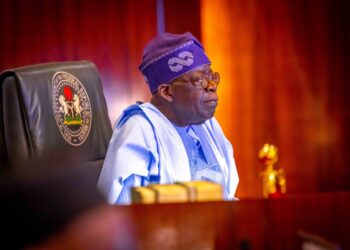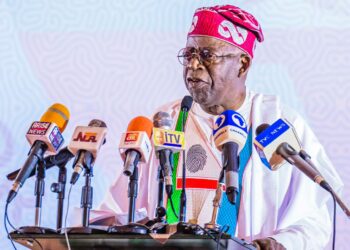Ajuri Ngelale, the Special Adviser to the President on Media and Publicity has said that President Bola Ahmed Tinubu is not afraid to fire any minister who does not perform in his/her duties.
He said this during an interview on Monday, August 28 via Channels Television.
According to Ngelale, before he appointed his ministerial cabinet, the president had commissioned several reform committees across all sectors of the economy and so, the ministers already had set benchmarks that they must achieve within set timelines.
He stated further that these benchmarks must be met, and the president is willing to ensure he oversees the achievements recorded by his ministers against these benchmarks.
The energy sector context
Following what Ngelale highlighted about reform committee reports, recall that in June 2023, Nairametrics reported that the Energy and Natural Resources subcommittees of the Bola Tinubu’s Advisory Council recommended some changes to the oil and gas sectors. Some of these include;
- A target of 4 million barrels per day production capacity, 12 billion cubic feet per day (bcf/d) of gas production capacity, and 7,500kta Petrochemicals capacity by 2030.
- Stripping the NNPCL of policy-making roles selling down NNPCL’s joint ventures to a minority position and developing an operating model that eliminates cash calls with a targeted raise of $17.4 billion.
- Expanding domestic gas reserves and promoting the development of a diversified oil and gas industry by implementing reforms in PIA including network code.
Meanwhile, in August 2023, Armstrong Takang, Chief executive officer at Nigeria’s Ministry of Finance Incorporated (MOFI), confirmed that the government is considering selling stakes in NNPCL and other entities in the country, as the ministry is considering options including strategic sales and initial public offerings and aims to implement the plan within 18 months.
Reducing the cost of governance
While addressing the issue of reducing governance costs during the August 28 interview, Ngelale said that President Tinubu is committed to being the president who will implement the Oronsaye report.
According to him, the fact that there are now more ministers does not change the fact that the president is willing to cut governance costs.
He stated that Tinubu gave each minister one critical sector to handle unlike the past when some ministers had two or three portfolios, so, now there is no excuse for failure.
To summarize, the Oronsaye report which was published in 2014 stated that at the time, there were 541 Federal Government parastatals, commissions, and agencies (statutory and non-statutory)
It recommended that 263 of the statutory agencies should be reduced to 161, 38 agencies should be abolished, 52 agencies should be merged and 14 should revert to departments in ministries.

















.gif)






